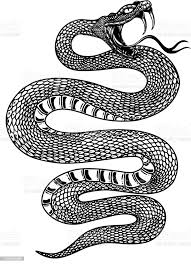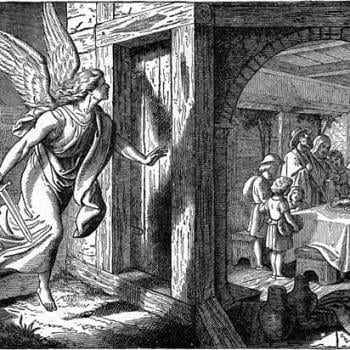All summer I made friends
With the creatures nearby –
They flowed through the fields
And under the tent walls,
Or padded through the door,
Grinning through their many teeth,
Looking for seeds,
Suet, sugar; muttering and humming,
Opening the breadbox, happiest when
There was milk and music. But once
In the night I heard a sound
Outside the door, the canvas
Bulged slightly – something
Was pressing inward at eye level.
I watched, trembling, sure I had heard
The click of claws, the smack of lips
Outside my gauzy house –
I imagined the red eyes,
The broad tongue, the enormous lap.
Would it be friendly too?
Fear defeated me. And yet,
Not in faith and not in madness
But with the courage I thought
My dream deserved,
I stepped outside. It was gone.
Then I whirled at the sound of some
Shambling tonnage.
Did I see a black haunch slipping
Back through the trees? Did I see
The moonlight shining on it?
Did I actually reach out my arms
Toward it, toward paradise falling, like
The fading of the dearest, wildest hope –
The dark heart of the story that is all
The reason for its telling?
Mary Oliver
Of Snakes, Ladders, and the Well
A Zen Meditation
James Ishmael Ford
I think the best analogy to what we actually find on our spiritual lives is how much it is like a game of Snakes and Ladders.
There is more than an element of chance to this. We’re born into one situation or another. We can make up stories about why, but the important thing is here we are, you and me. You roll the dice, and you slide to the bottom. You roll the dice, and you end up at the top. Ascribing meaning here can be a fatal mistake. Ascribing meaninglessness can be a fatal mistake. Either is a trap, and can be soul killing.
Now, maybe if your perspective is broad enough you can see all the near infinite variations of the dance of causality and with that “chance” isn’t a good word. But, if you live in the world most of us occupy, it very much looks like you do what you can do, and after that it’s in the hands of the gods. With that a suggestion. It’s better to let go of chasing after why you’re here. If you can, then aspects of the way that can be very helpful become apparent.
You may be more familiar with Snakes and Ladders as “Chutes and Ladders,” the name Milton Bradley gave to the ancient Indian board game called “Snakes and Ladders.” Chutes being less disturbing than snakes for the intended audience, I assume. The origins of Snakes and Ladders or Moksha Patam is literally lost to the mists of antiquity.
It’s always been a children’s game. The element of pure luck can bore adults. Although I find myself thinking of Jesus’ caution how on this intimate way we really do need to become as children.
Hindus, Jains, Buddhists, and later, Christians, have all used it to teach morality to kids. Here we catch that fundamental aspect of religion expressed as the Golden Rule. In the oldest strata it appears to teach about desire, destiny, and the weirdness of karma. So, an invitation into the mess of life, the wildness of this roller coaster ride, and the, well, just plain luck that is such a large part of our lives, material and spiritual.
In Snakes and Ladders, the ladders were associated with virtues such as generosity, grace, and success. I find that success being counted as a virtue, an interesting thing. One of the little traps of religion as social control. While the snakes represented vices like lust, anger, theft, and murder. An interesting footnote to it is how of the one hundred squares which make up the game, more are snakes. The way of virtue is always harder.
Returning to that ghost story koan from the Gateless Gate where the ghost when an abbot gave a wrong answer about cause and effect and was constantly reborn as a fox spirit. One of the turning points is about the identity of our awakening and this very body. Another turns on the question, “What if the old abbot gave the right answer each time? What about then?” Snakes and Ladders reveals a bit of the answer to that question. And.
If you’re concerned about the luck aspect of this, I recall the guidance of several of my teachers that awakening actually is an accident. You can’t attribute any specific cause that precipitates the great eruptions of our hearts. The spirit in fact rests where it will.
However, and this is so important: our practices make us accident prone. They attract the spirit. It would seem. So, from one angle accidents. From another the ascent of the holy mountain. There’s a Tibetan version of the game, “Ascending the Spiritual Levels.” I like that.
Our practices on the Zen way include the great disciplines of meditation. But it also has a container of an ethical life captured for us within the sixteen Bodhisatva precepts. Remember that spiritual bypassing thing? This game reminds us of the intimate connection between our spiritual aspirations and what we do. This is where engaging the actions of our lived lives and knowing something about our inner urges, especially the ones we don’t want to look at needs shoring up. It can be critical for those walking the intimate way.
And, of course, there’s the image of awakening, the thing that is not what you think. The Fat Guy. So, while I’m fond of the Snakes and Ladders model. Ultimately as a map it doesn’t really work. A map. But perhaps more a child’s copy of a pirate’s treasure map. Much of its there, but the direction isn’t quite right. There are many such maps. Both ancient and modern.
That said, with Snakes and Ladders in mind, I’ve long cherished another image or map of the way, composed by my friend the Zen teacher Dosho Port. He offers six steps:
1) Idealization
2) Covert clinging to hopes for magical gain
3) Extreme crabbiness at self and others
4) Steadily walking without getting anywhere
5) Experiencing fruition
6) Falling into a well
And then, of course, repeat. So, maybe that’s seven.
What I’m pretty sure of, is there are innumerable wells. More snakes than ladders. To be a body is to fall into wells. And. The world is filled with these “ands.” One of those wells, of course, is a tumble into the great forgetting. But. Mostly we’re talking about that other wells. If we’re really following the way, we fall into pretty much all of them. Although it also seems many of these wells were custom dug just for us. You. Me.
I suspect every map of the way that has steps, each could appropriately end with and then you fall into a well.
But, for a moment, let’s return to that other well. The big one. The great forgetting. The vast. The unknowing. The empty. The place that seems to be available within any culture and its religions. The perennial. The thread.
The great gift of the way.













